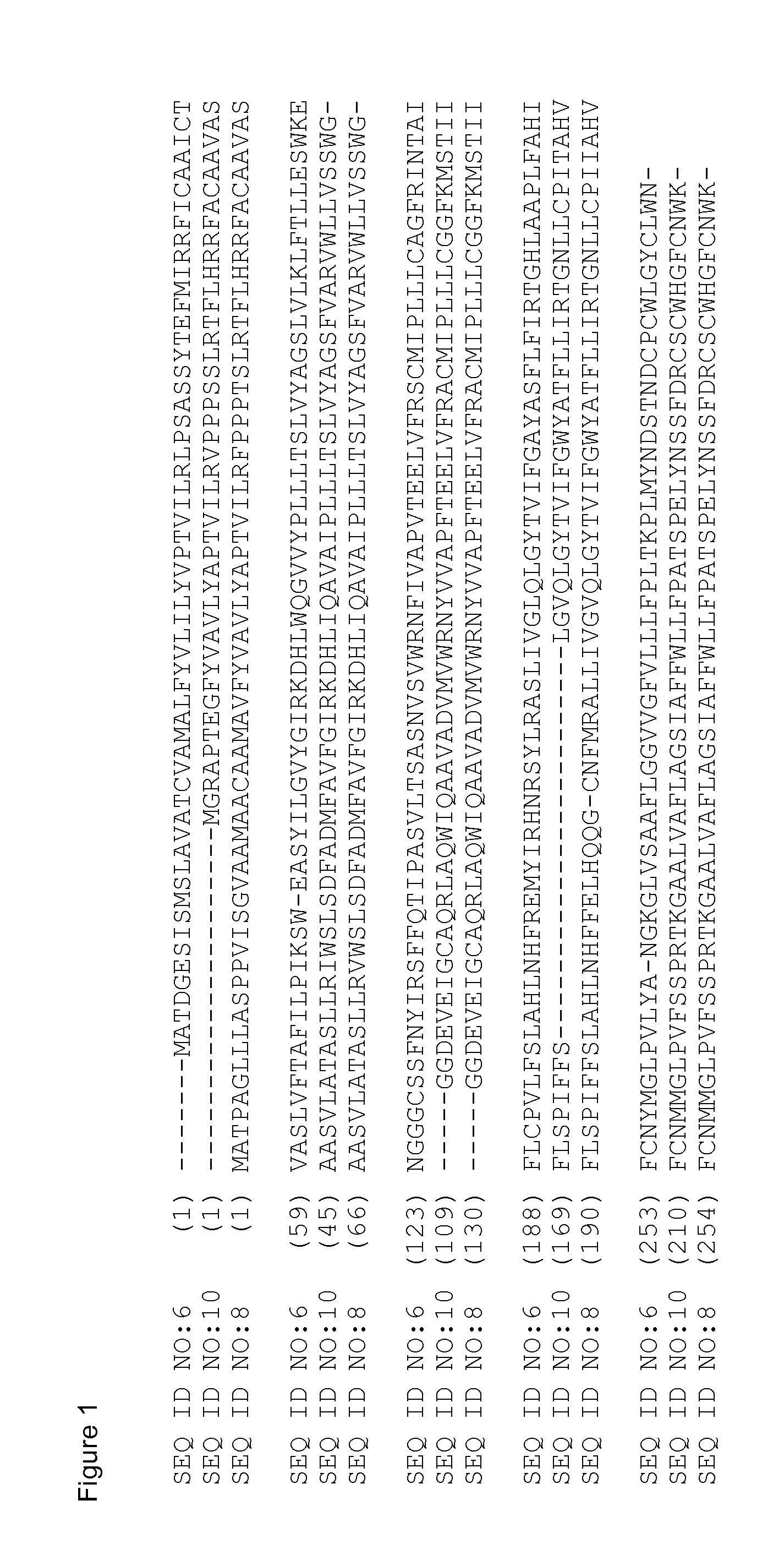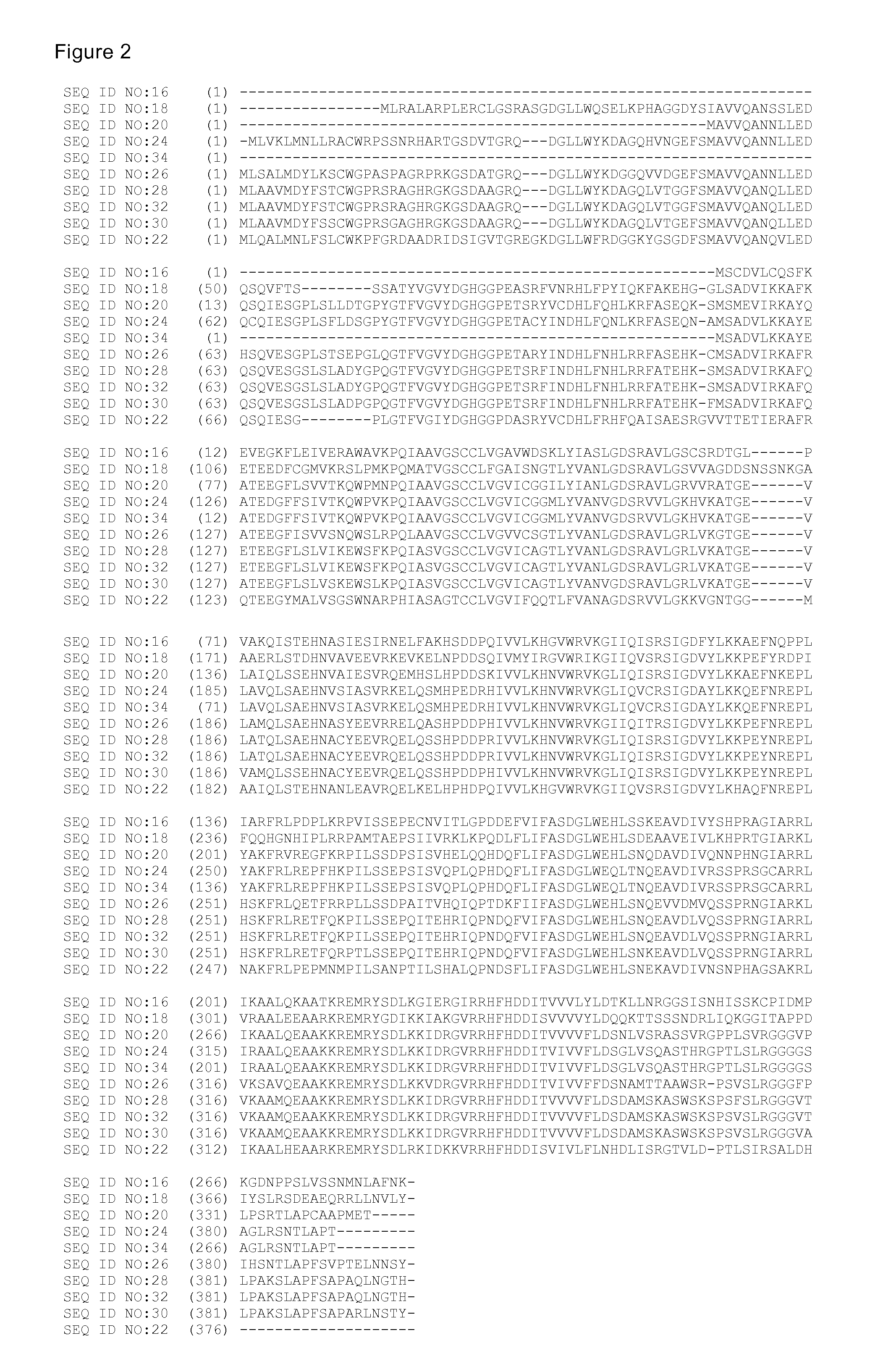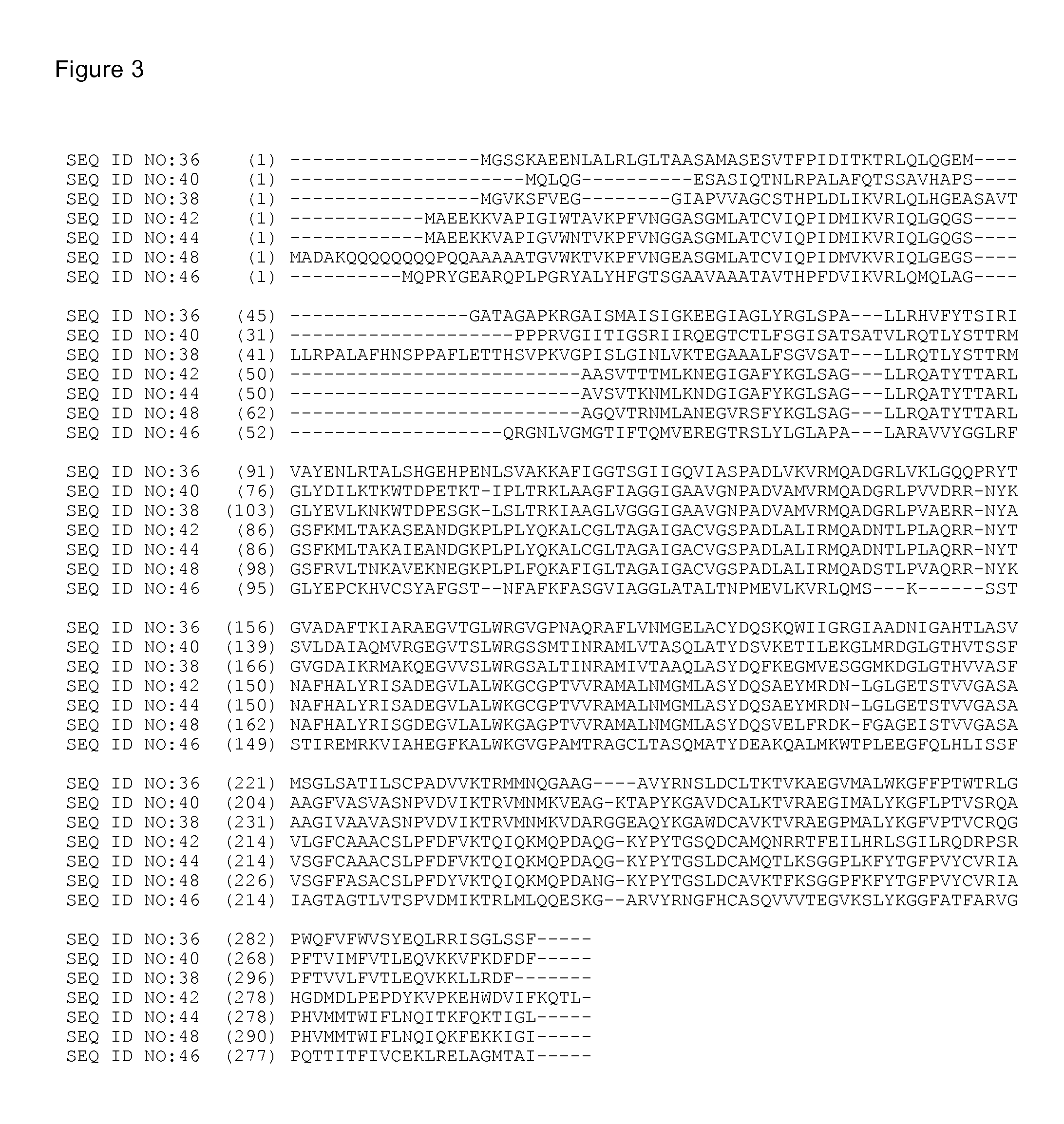Transgenic plants with increased stress tolerance and yield
a technology of stress tolerance and plant, applied in the field of transgenic plants, can solve the problems of limiting the growth and crop yield of plants, cell death and consequently yield loss of plants, and plant cells lose water, so as to increase the yield of agricultural products of plants and enhance plant growth
- Summary
- Abstract
- Description
- Claims
- Application Information
AI Technical Summary
Benefits of technology
Problems solved by technology
Method used
Image
Examples
example 1
Cloning of cDNAs
[0094]cDNAs were isolated from proprietary libraries of the respective plant species using known methods. Sequences were processed and annotated using bioinformatics analyses. The degrees of amino acid identity and similarity of the isolated sequences to the respective closest known public sequences are indicated in Tables 2 through 18 (Pairwise Comparison was used: gap penalty: 10; gap extension penalty: 0.1; score matrix: blosum62).
[0095]
TABLE 2Comparison of At2g20725 (SEQ ID NO: 2) toknown CAAX amino terminal protease proteinsPublic DatabaseSequenceAccession #SpeciesIdentity (%)NP_565483A. thaliana99.70%ABE87113Medicago truncatula27.00%NP_563943A. thaliana25.60%AAU90306Solanum tuberosum25.20%AAM65055A. thaliana25.00%
[0096]
TABLE 3Comparison of At3g26085 (SEQ ID NO: 4) toknown CAAX amino terminal protease proteinsPublic DatabaseSequenceAccession #SpeciesIdentity (%)NP_566788A. thaliana100.00%BAC43478A. thaliana99.70%AAM63917A. thaliana99.30%NP_001078210A. thaliana91...
example 2
Well-Watered Arabidopsis Plants
[0151]The polynucleotides of Table 1 are ligated into a binary vector containing a selectable marker. The resulting recombinant vector contains the corresponding gene in the sense orientation under a constitutive promoter. The recombinant vectors are transformed into an Agrobacterium tumefaciens strain according to standard conditions. A. thaliana ecotype Col-0 or C24 are grown and transformed according to standard conditions. T1 and T2 plants are screened for resistance to the selection agent conferred by the selectable marker gene. T3 seeds are used in greenhouse or growth chamber experiments.
[0152]Approximately 3-5 days prior to planting, seeds are refrigerated for stratification. Seeds are then planted, fertilizer is applied and humidity is maintained using transparent domes. Plants are grown in a greenhouse at 22° C. with photoperiod of 16 hours light / 8 hours dark. Plants are watered twice a week.
[0153]At 19 and 22 days, plant area, leaf area, bio...
example 3
Nitrogen Stress Tolerant Arabidopsis Plants
[0154]The polynucleotides of Table 1 are ligated into a binary vector containing a selectable marker. The resulting recombinant vector contains the corresponding gene in the sense orientation under a constitutive promoter. The recombinant vectors are transformed into an A. tumefaciens strain according to standard conditions. A. thaliana ecotype Col-0 or C24 are grown and transformed according to standard conditions. T1 and T2 plants are screened for resistance to the selection agent conferred by the selectable marker gene.
[0155]Plants are grown in flats using a substrate that contains no organic components. Each flat is wet with water before seedlings resistant to the selection agent are transplanted onto substrate. Plants are grown in a growth chamber set to 22° C. with a 55% relative humidity with photoperiod set at 16 h light / 8 h dark. A controlled low or high nitrogen nutrient solution is added to waterings on Days 12, 15, 22 and 29. Wa...
PUM
| Property | Measurement | Unit |
|---|---|---|
| full-length polypeptide | aaaaa | aaaaa |
Abstract
Description
Claims
Application Information
 Login to View More
Login to View More - R&D
- Intellectual Property
- Life Sciences
- Materials
- Tech Scout
- Unparalleled Data Quality
- Higher Quality Content
- 60% Fewer Hallucinations
Browse by: Latest US Patents, China's latest patents, Technical Efficacy Thesaurus, Application Domain, Technology Topic, Popular Technical Reports.
© 2025 PatSnap. All rights reserved.Legal|Privacy policy|Modern Slavery Act Transparency Statement|Sitemap|About US| Contact US: help@patsnap.com



